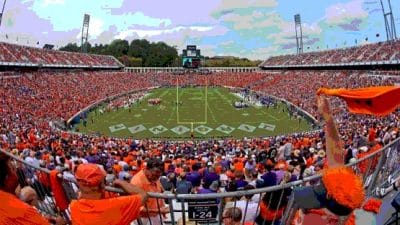
The popularity of online gambling in Europe has grown exponentially over the last years. Most EU countries allow at least some sort of online gambling. In some countries, all games are permitted whereas others only allow certain types of gambling.
The industry has put a lot of effort in building its own customer base in many European countries, and currently the best online casinos are based on this continent. Beside online casinos there’s a lot of other gaming-related activities, such as casino comparison sites. Popular Scandinavian brands such as Bonusetu.com are focused on listing and reviewing all the different online casinos in the market.
Online casinos in Europe are not that different from casinos elsewhere, but what makes them so popular? One reason must be that Europe has the strictest authorities regulating gambling thus building confidence and trust among players. These supervising bodies require transparency and ensure that all players across Europe are entitled to place their bets on established and regulated gambling sites. The European regulations also make the operators adhere to a strict policy on responsible gaming and data protection.
Regulation of gambling in the EU
In the European Union’s single market, a gambling operator located in one of the EU countries is able to market and sell their services throughout the market. This is possible since the freedom to provide services also applies to gambling.
Each member state has the right to carry out gambling operations through a system of its own choice. However, regulation is always mandatory. Options to regulate gambling include a licensing or a monopoly system, or a combination of these two. Whatever system is chosen, it must help in the fight against money laundering, terrorist financing and gambling problems.
The majority of European countries have chosen a licensing system to regulate their gambling. This means that in order to offer games, they need to obtain a license. A common policy is that certain games based on luck (such as lotteries) are left in the hands of a state monopoly. Only Finland and Norway have a monopoly on all gambling.
A license is a proof that an online casino is regulated and supervised properly by an official regulatory body. Licensors, i.e. gaming authorities, regularly inspect their licensed casinos to ensure a safe gaming environment for the players, and also support in the event of any problems.
Malta Gaming Authority
The tiny Malta in the middle of the Mediterranean is familiar to many online casinos. It is the best-known licensor in the European online casino market, and Malta Gaming Authority (MGA) has a decade of experience in licensing and regulatory activities. A gaming license issued by MGA entitles operators to offer their services throughout the free market of the EU.
One reason for MGA’s popularity is the country’s taxation system which is quite favorable for gaming operators.
Applying for an MGA license is a complex and time-consuming process, and the license is not easily granted. Before getting it, the casino goes through a thorough investigation and afterwards it must follow all the rules and regulations set by MGA. The casino operator is also required to provide its customers with information on responsible gaming and gambling problems.
For players, one of the best news is that MGA requires its licensed casinos to separate players’ funds from the casino funds. This prevents the casinos from mixing the players assets with their own in case the casino runs into financial difficulties.
Other licensors
The gaming license issued by the Estonian Gaming Authority is a viable alternative to MGA. The licensing system combines features of both the Maltese model and the more conservative national licensing system popular in other European countries. Estonian-licensed online casinos provide a safe playing environment to players living within the European free market. Oddly enough, Estonians themselves are not allowed to play at any licensed casinos outside their own country.
Sweden abandoned its state monopoly system in early 2019. As a result of the licensing system, gaming companies providing their services in Sweden are now required to obtain a state license. At the same time, regulatory responsibility remains with Sweden, and it is undoubtedly one of the strictest regulators in the gaming industry.
Gibraltar, on the southern edge of Spain, has been licensing gaming companies since the early 1990s and has become one of the online casino hubs in Europe. Despite its location, Gibraltar still belongs to the British empire and Brexit was expected to crash the casino business on this tourist attraction. However, miracles happen. According to a pre-agreement, Gibraltar was incorporated into the EU’s Schengen Area. This means that the sunny mountain city continues to grant gaming licenses, allowing casino operations and tax-free winning throughout the EU.
Story by Teemu Salminen










